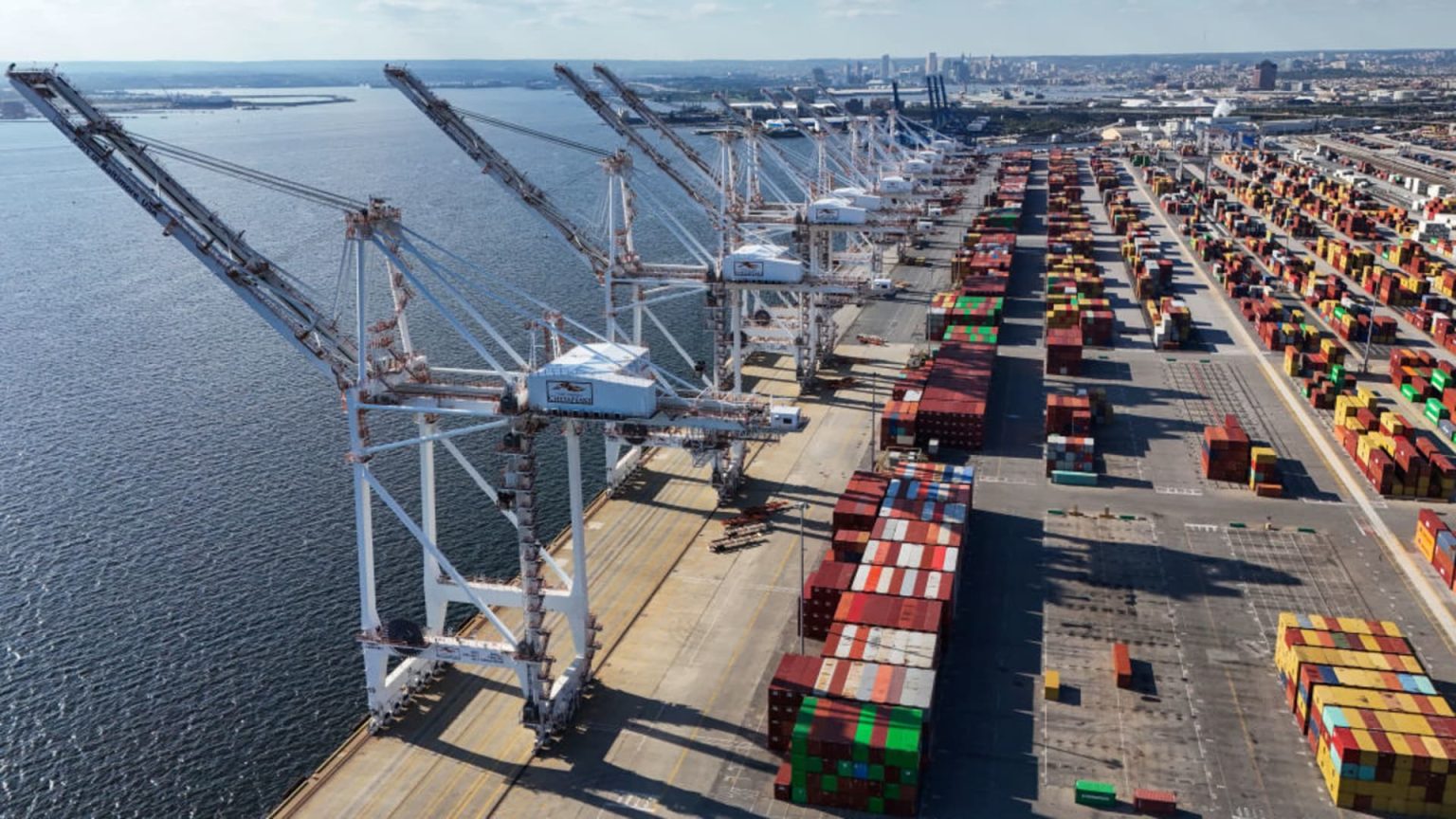Shares of Moller-Maersk dropped more than 8% following the conclusion of a U.S. port strike, leading to a decline in European shipping companies. The strike, which involved U.S. dockworkers and the United States Maritime Alliance, had caused disruptions in supply chains and threatened the availability of essential goods such as fruits, pharmaceuticals, and automobiles. A tentative deal on wages was brokered on Thursday, extending the existing contract through Jan. 15 to allow time for negotiations on a new agreement. A prolonged strike would have potentially allowed European shippers to gain a larger share of global supply chain demands.
Maersk’s shares decreased by 7.2% following the conclusion of the strike, while other European shipping companies such as Germany’s Hapag Lloyd and Swiss logistics company Kuehne + Nagel also experienced declines in their stock prices. The ending of the strike brought relief to U.S. supply chains, which had already been affected by significant disruptions as a result of the walkout. Billions of dollars in goods had been anchored offshore, leading to concerns about supply shortages during the upcoming holiday shopping period. The strike had primarily impacted U.S. East Coast and Gulf Coast ports, causing delays and uncertainty in the transportation of goods.
The strike resolution came as a relief to the shipping industry, providing a temporary reprieve from the threat of further disruptions in the U.S. supply chain. The agreement on wages and the extension of the existing contract allowed for continued negotiations between the dockworkers and the maritime alliance, potentially preventing future strikes that could impact the flow of goods in and out of U.S. ports. The decline in stock prices for European shipping companies, including Moller-Maersk and Hapag Lloyd, reflected investor concerns about the potential impact of the strike on their operations and profitability.
The impact of the U.S. port strike on global supply chains highlighted the interconnected nature of the shipping industry and the potential ripple effects of disruptions in key transportation hubs. The brief walkout had already caused significant disruptions and delays, underscoring the importance of efficient and reliable supply chain management. The strike served as a reminder of the challenges faced by companies operating in the maritime sector, with concerns about labor disputes and their impact on the movement of goods and services across borders. The resolution of the strike provided some stability to the industry, allowing for a return to normal operations and the resumption of trade activities.
The market reactions to the conclusion of the U.S. port strike reflected investor sentiment regarding the potential risks and uncertainties associated with disruptions in the supply chain. The stock price declines for European shipping companies indicated concerns about the financial implications of the strike and its aftermath. The impact on Maersk and other companies in the industry highlighted the vulnerability of the maritime sector to labor disputes and other external factors that could affect their operations and profitability. Moving forward, the focus would be on ensuring the smooth functioning of supply chains and minimizing the risk of future disruptions that could harm the global economy.
In conclusion, the resolution of the U.S. port strike brought relief to the shipping industry and the wider supply chain, averting further disruptions and allowing for the resumption of normal trade activities. The decline in stock prices for European shipping companies following the conclusion of the strike reflected investor concerns about the potential impact on their operations and profitability. The brief walkout had already caused significant disruptions to U.S. supply chains, underscoring the importance of efficient and reliable transportation networks. The agreement on wages and the extension of the existing contract provided a temporary reprieve, allowing for continued negotiations and the potential avoidance of future strikes that could disrupt global trade.













